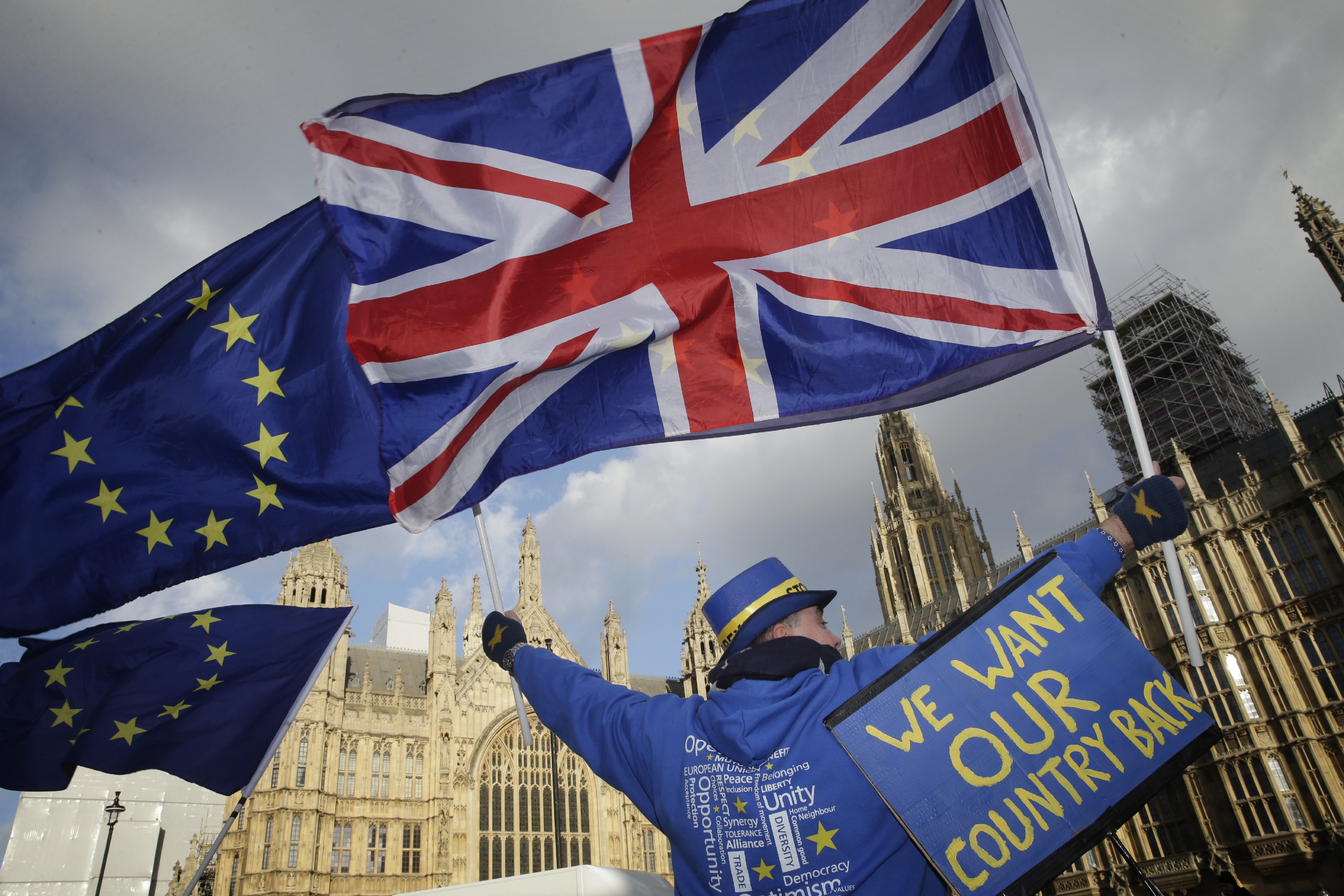Can the Greek example be useful for the UK amidst its Brexit turmoil?
- By George N. Tzogopoulos
 0 Comment(s)
0 Comment(s) Print
Print E-mail China.org.cn, December 20, 2018
E-mail China.org.cn, December 20, 2018

In June 2016, the majority of British citizens voted for their country to leave the EU in a nationwide referendum. The result was unexpected and no one could anticipate what was to follow after. In addition, the process of leaving the EU was unknown and a potential deal between London and Brussels was subject to difficult negotiations and bargaining. Now 2.5 years later, the U.K. seems to be losing more from the agreed divorce in comparison to the EU. While the latter has managed to secure a deal to protect its interests as well as appease fears that Brexit could start a chain reaction of other countries leaving the EU, the U.K., on the other hand, has entered a period of political division, frustration and uncertainty.
At the time of writing several options are being discussed. These include an exit of the U.K. from the EU without a deal in March, the approval of the current deal, or of an improved version of it, by Parliament in January, and even a second referendum. The front page of the Sunday Times on December 16, for example, speculated on the possibility of a second referendum as part of a plot organized by aides of Prime Minister Theresa May whose political future remains unclear. Although she recently survived a no-confidence vote, her Conservative Party is divided between supporters of her agreement with the EU and MPs who fiercely oppose it. The only good news for the prime minister is that a recent poll conducted by Opinium Research found that 47 percent of respondents viewed her as someone who is brave and sticks to her principles.
Labor Party leader, Jeremy Corbyn, is also facing mounting political challenges. The latest YouGov survey shows that the party will fall to third place should it support the Conservatives in pushing the current deal through. In addition, Labor party voters view the possibility of a second referendum favorably. The survey also found that the majority of respondents (59 percent) prefers that the country stays in the EU while the minority (41 percent) supports a departure on the basis of May's deal.
Surveys asking British citizens how they would vote in a potential second referendum have already taken place. Although the reliability of the surveys is contested, the polls indicate that the majority now is prepared to vote for the U.K. to stay in the EU. Meanwhile, organizations such as the Bank of England warn about the dramatic consequences should the U.K. exit the EU without an agreement. These might include a disruption of food and manufacturing supplies and the loss of accreditation for British products to be sold in the EU.

The political reality seems grim for May. Her decision to postpone the critical vote on her Brexit deal in Parliament for January, and her subsequent failure to obtain some tangible improvements for it in Brussels, exhibit how difficult it is for her to persuade the majority of British lawmakers. May is sincere when she says she is acting in line with the result of the June 2016 referendum. But seeing that Brexit is now deadlocked and economic turmoil is approaching, the decision for a second referendum could be a rational option.
There is not much the U.K. might envy about Greece as far as politics is concerned but under the current circumstances, the ease at which Greek politicians are maneuvering appears to be useful. In the summer of 2015, Greek Prime Minister Alexis Tsipras called a referendum and asked Greek citizens to vote in favor of or against austerity. The majority voted against austerity empowering him to either leave the Eurozone or achieve a better economic accord for Greece. Tsipras failed and was finally forced to sign a new bailout. He did not resign and won the snap election he called in spite of his turnover.

Theresa May can carefully study Tsipras' political behavior and the reaction of Greek citizens. The majority of Greeks voted again for Tsipras acknowledging that he passionately fought to achieve better economic terms for Greece but was denied by its creditors. Eventually he kept the country in the Eurozone thereby betraying his pre-election promises and leftist ideology.
A similar path will perhaps be in the national interest of the U.K. May negotiated hard to achieve a relatively good and balanced Brexit accord. She reached it and now several British lawmakers within the Conservative party are dissatisfied and are jeopardizing the legal process. A second referendum will certainly avert an exit of the U.K. from the EU without an agreement. May needs the courage to admit she cannot escape from the current political and economic labyrinth and ask British citizens to define the future of their country again. Being more mature, this time they might vote to avert a lose-lose Brexit option and value their Prime Minister's stance.
George N. Tzogopoulos is a columnist with China.org.cn. For more information please visit:
http://www.china.org.cn/opinion/GeorgeNTzogopoulos.htm
Opinion articles reflect the views of their authors, not necessarily those of China.org.cn.






Go to Forum >>0 Comment(s)